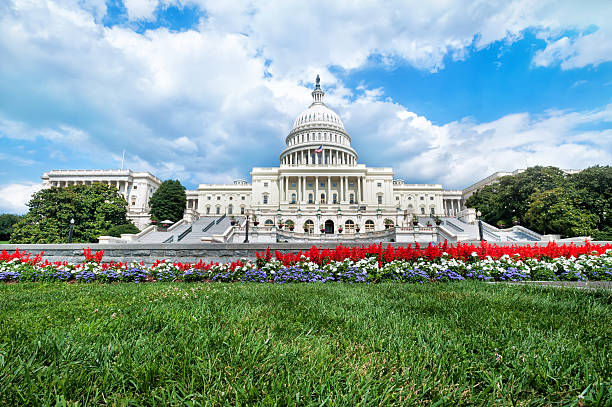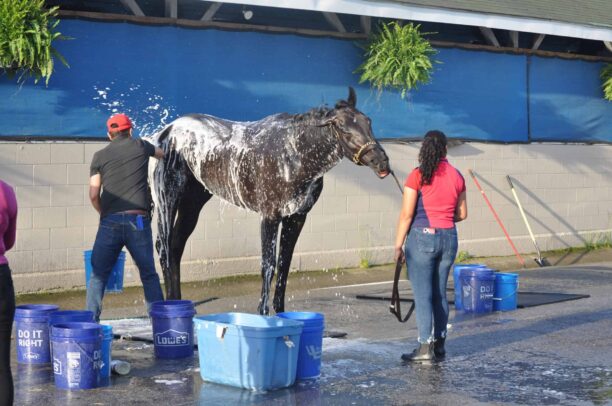
Continuing Tax Bill Updates
The centerpiece of the second Trump administration, the One Big Beautiful Bill Act (OBBBA), continues its march through the Senate. After passing the House of Representatives by a single vote, the Senate has been taking its turn trying to pass the Act, albeit with its own changes.
Importantly, one of the most significant changes is a revision to the wording of bonus depreciation. In the Senate’s bill, bonus depreciation will stay at 100% but will stay there permanently. This is different from the House’s version of the bill, which had 100% bonus depreciation lasting only for five years, before it would be phased out.
Since Senate Republicans are trying to pass this bill using reconciliation, the bill is subject to something called the Byrd Rule, which restricts reconciliation to provisions that have a direct budgetary impact. This rule is enforced by the Senate Parliamentarian, who has struck many things from the Bill in recent days, potentially setting the Republicans’ timeline back. Still, the GOP can rework the struck items and see if those edited provisions pass muster, though that would take time, something President Trump has been insistent on saving – he wants the bill on his desk by Independence Day, come hell or high water.
Republicans could run into trouble with their use of current policy baseline, the accounting tactic they want to use to zero out the cost of tax-cut extensions. Other adverse recommendations from Parliamentarian Elizabeth MacDonough could force additional redrafts of Republicans’ tax plans. Some items that might be affected by the Byrd Rule include Vehicle transfers for NASA, removing SNAP eligibility for immigrants, lessening restrictions on firearm silencers, and authorizing states to conduct border security and immigration enforcement, among others.
As previously mentioned, Senate Republicans are hoping to pass this bill as soon as possible. In the GOP’s ideal scenario, the Senate passes the Bill, it goes back to the House, which then passes it before the 4th of July, when the President would then sign it into law. There are still many hurdles before that happens, though, and it remains to be seen if that timeline will remain in place. Senator Ron Johnson of Wisconsin said, “I highly doubt,” the legislation will be passed on that timeline. Speaker of the House Mike Johnson has advised Members of Congress to stay in town to potentially vote on the bill as soon as possible, if and when it passes the Senate.
Trump Promises Immigration Protections for Farmers, Then Backs Off
President Trump knows his immigration policies are hurting the farming and hotel industries. He’s admitted as such, saying that: “changes are coming,” to protect farmers and leisure industries that rely on immigrants. But his administration hasn’t acted that way, at least not yet. The President and his administration seem to be stuck between a major campaign promise of mass deportations and a reality that a majority of farms and hotels employ immigrant workers (including his own businesses). Of course, this includes the Thoroughbred racing industry, which employs thousands of immigrants in many different capacities. As of June 26, there has not been an official order to slow or stop the targeting of farms or hotels for raids.
In the meantime, United States Immigration and Customs Enforcement (ICE) has not slowed down in its mandate to reach a quota of 3,000 arrests a day. Raids have taken place across the country, including at racing venues, Delta Downs being the most prominent example.
Members of the administration, like White House Border Czar Tom Homan, insist that they are targeting those with a criminal record first and foremost and prioritizing those with a “criminal nexus”. Roughly 80 people were arrested at Delta Downs, and two had criminal records.
Still, Trump promises a path: “We’re looking at doing something where in the case of good, reputable farmers, they can take responsibility for the people that they hire, and let them have responsibility, because we can’t put the farms out of business, and at the same time, we don’t want to hurt people that aren’t criminals.”
H-2B Appropriations Amendment Passed by House Appropriations Committee
On Tuesday, June 24th, the House Appropriations Committee adopted by voice vote a bipartisan en bloc amendment offered by Dr. Harris (R-MD) to the FY 26 Department of Homeland Security Appropriations bill that would do the following:
- Create a certified seasonal employer H-2B cap exemption;
- Clarify the definition of temporary and seasonality of H-2A workers;
- Prohibit DHS from implementing the “Modernizing H-2 Program Requirements, Oversight, and Worker Protections Rule;” and
- Allow mobile carnivals and circuses to use the P-visa program.
Creating the H-2B cap exemption is the most relevant for the Thoroughbred industry. The amendment ensures that seasonal businesses continue to receive cap relief in FY 2026. Under the amendment, Certified Seasonal Employers are defined as any seasonal employer that received an H-2B labor certification from the Department of Labor in fiscal years 2025, 2024, 2023, 2022, and 2021. The cap exemption would apply to the highest annual number of H-2B workers that the employer was certified to hire during the last five fiscal years. If the employer wants to request additional workers on top of this number in any subsequent year, those requests will count against the cap.
While the amendment passed by voice vote, the debate over the DHS Appropriations bill is expected to go on for quite a while. The bill is expected to pass along a party-line vote, with all or most Democrats voting against the overall funding bill. We will keep you updated on the progress of this bill as it continues in Committee.


